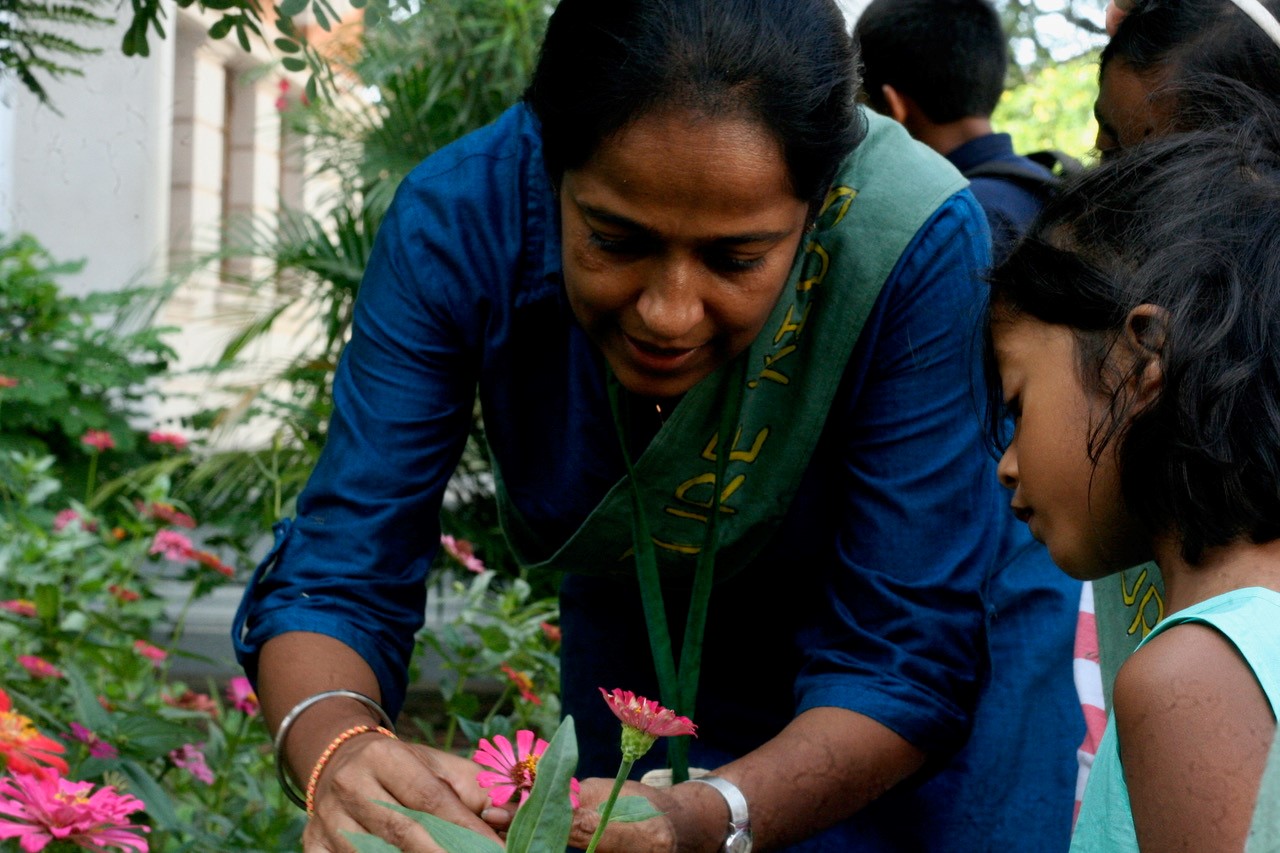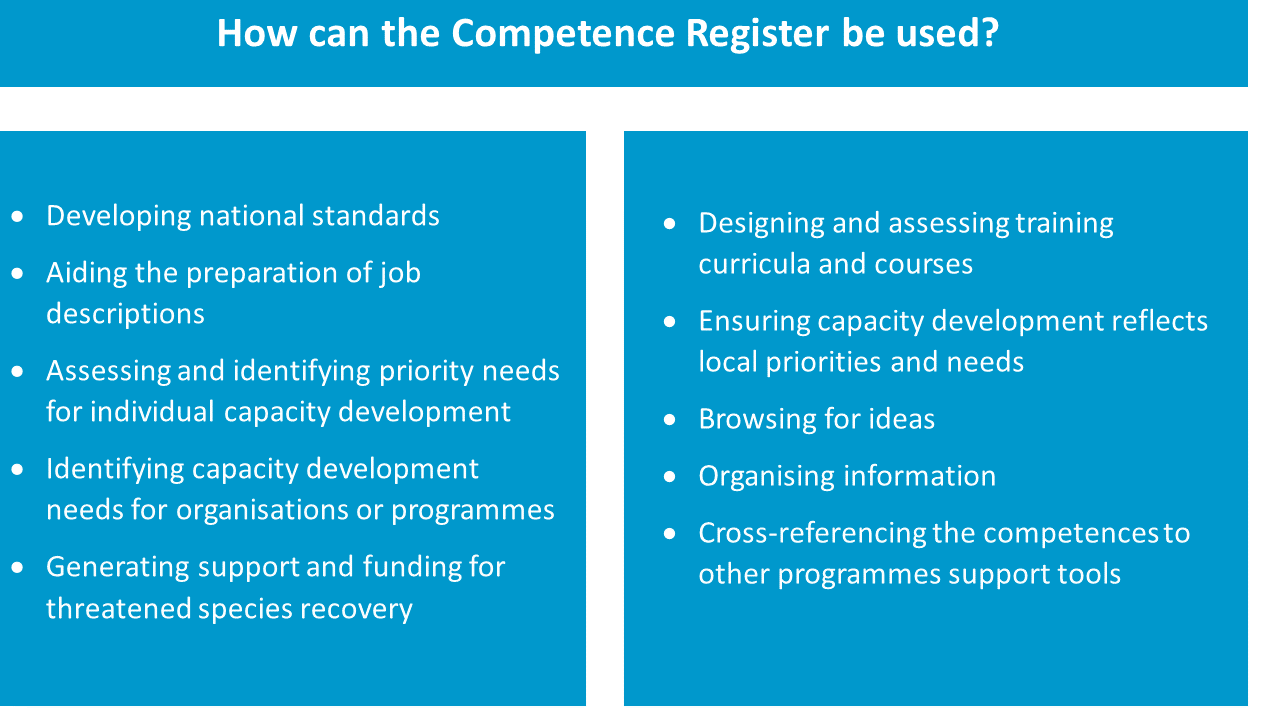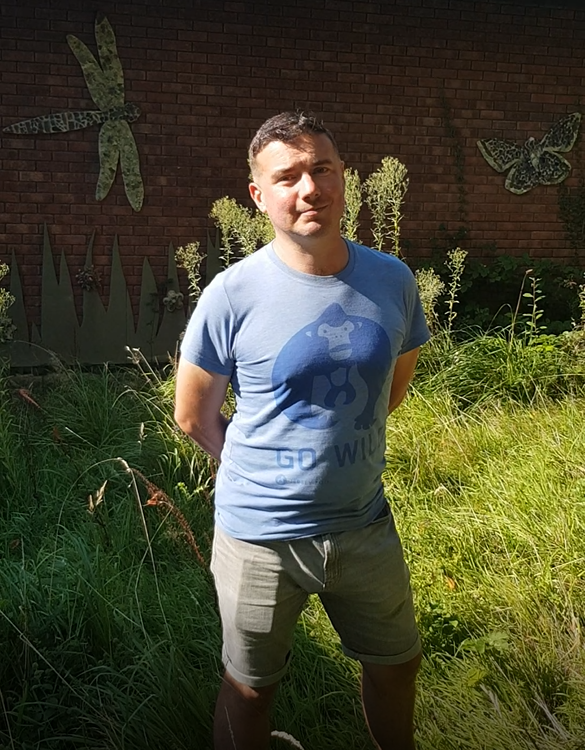Training Strategy
Section outline
-
-
We have a vision and plan for the difference we want to make for the conservation community
Conservation Professionals, Programmes and Potential:
Durrell’s Training Strategy 2020-2025.
The planet faces an unprecedented ecological crisis. Effective nature conservation programmes - and effective conservationists - are needed more than ever to save and recover wildlife and ecosystems. To meet this challenge, and overcome the many political, financial and social barriers in our way – conservationists need to better equipped to do more effective conservation.This means being better skilled, more knowledgeable, professional, more strategic, adaptable and resilient.
As a community of conservation professionals, we need to work more closely together to share ideas, knowledge and experiences, and help each other rise to this challenge.
We believe that conservationists deserve more accessible and higher quality training and professional development opportunities.
At Durrell, we are passionate about enabling conservation practitioners, and aspiring professionals, to acquire and share the competences needed to be more effective and to achieve career-goals.
We believe that conservationists need access to more training and longer-term professional development opportunities to grow their leadership abilities, as well as their professional and technical skills. We believe conservationists, and the conservation community as a whole, would benefit from more opportunities to come together to share experiences, challenges and ideas.
Our Vision: 'a global community of conservation professionals rewilding the world'.
We have set ourselves ambitious goals to achieve by 2025 to start to realise this vision. These include:
- 500 conservation professionals working more effectively in threatened species recovery
- 50 species-focussed conservation programmes in our priority regions - or on our priority species - are working more effectively
- 1,000 aspiring conservationists have been trained and provided early career support

Long-term and sustained professional development is essential for conservationists to acquire all the competences needed to be highly effective
To achieve these goals, we have developed a blended programme of specialist face-to-face, self directed and online training in both technical and professional skills. We are launching a new 2-year professional development programme for conservationists in the workplace, prioritising those working in Durrell’s priority regions or working on our priority species.
All these courses and programmes will be supported by our new online learning management system, a range of scholarships and an alumni support network.
We are launching a new programme which harnesses our institutional expertise in the best practice of adaptive management of conservation projects – the Conservation Standards. This programme will provide projects and organisations with strategic and technical guidance to help them become more effective.
Defining and measuring success is key in any effective strategy
The impact of our new strategy will be tracked through our sector-leading monitoring systems. We are working with an academic partner to conduct in-depth evaluations to ensure our training and professional development is making the difference we set out to achieve.
Empowering Effective ConservationistsOur NEW brochure – Empowering Effective Conservationists - sets out what we want to achieve through our Training work by 2025, and how we will go about it.
BY 2025, WE WANT TO SEE:
50
species-focused conservation programmes working more effectively
500
conservation professionals working more effectively in threatened species recovery
1,000
aspiring conservationists have been trained and provided with early career support
-
A Global Register of Competences for Threatened Species Recovery Practitioners
Published by the IUCN, Durrell led the production of this register in partnership with Re:wild (once Global Wildlife Conservation) and the Species Survival Commission. It took nearly two years of hard work and consultation with hundreds of practitioners but - for the first time in our sector - the skills, knowledge and personal qualities required to be competent in Threatened Species Recovery are outlined. It is is designed to help individuals, programmes and organisations identify capacity needs and to design training interventions and broader professional development to address these needs. Above all the Register demonstrates that threatened species recovery is a complex, multi-skilled profession worthy of support and respect. We are already using it within our Training Programmes and will be promoting its use across the species conservation community.
To access your own copy of the register, visit the IUCN portal to the documentation, or explore the IUCN SSC webpage for A Global Register of Competences for Threatened Species Recovery Practitioners | IUCN
-
How the Competence Register can benefit you
-

 How is the Training Academy using the competence register?
How is the Training Academy using the competence register?There are numerous applications for the threatened species recovery competence register, and we are keen to advocate its value by further integration into our work. Here are just a few ways we have started to include the register into training:
Career Progression – for anyone looking to develop their career in conservation, or even switch careers to the conservation sector, the competence register is an invaluable tool for doing so. As a conservation practitioner, the framework can help identify the next steps in your training, clarifying what it would take to develop a particular set of competencies from skilled worker right up to executive level. As a career switcher, the framework will help you to identify how your current skills are transferrable to the conservation sector, where your strengths might lie, and which skills and knowledge you need to develop for your ideal role.
A Story of Success
 One way in which the register can be used is to help to complete job application forms and produce an exceptional curriculum vitae. We have wonderful evidence of how this has been applied! In December 2020, course participants of our online Endangered Species Recovery course took the first look at the nearly complete register. One participant used the framework to complete an application form for an internship with Durrell, and modify his CV to illustrate how a school teacher could switch to a conservation role. Success! Andrew has nearly completed a six-month placement with Jersey Zoo. Keep an eye out for his blog coming soon, and hear all about his remarkable experience…
One way in which the register can be used is to help to complete job application forms and produce an exceptional curriculum vitae. We have wonderful evidence of how this has been applied! In December 2020, course participants of our online Endangered Species Recovery course took the first look at the nearly complete register. One participant used the framework to complete an application form for an internship with Durrell, and modify his CV to illustrate how a school teacher could switch to a conservation role. Success! Andrew has nearly completed a six-month placement with Jersey Zoo. Keep an eye out for his blog coming soon, and hear all about his remarkable experience… Photo Left: Andrew Heaver enjoying his placement at Jersey Zoo
Describing our Training Courses – in time, we will further describe our courses using the register’s framework making it even clearer what specific knowledge you will gain by attending one our courses. This will help you to identify the right training course for your needs, and help you confidently communicate your new abilities to others.
Integration into Professional Development Programmes – as part of our New Training Strategy, we are launching Professional Development Programmes to deliver extended training and support for key individuals. We have used the competence register to help design a bespoke training programme for each recipient by performing a one-to-one training needs assessment. This will ensure our support is relevant and appropriate. An assessment scale will further allow recipients to qualitatively and quantitively evaluate their competence development as a result of the programme.
Wider promotion of the register – across social media and within our courses, we are directing students, partners and even colleagues, to find out more about this tool, explain why it can be of benefit and how to take advantage of it.
The major role of a global register of competences for threatened species recovery practitioners, is to highlight that strengthening technical capacity in this field cannot be achieved solely by occasional courses on specific skills at places where existing financial and professional capacity is low. It requires sustained, long-term investment in this well-defined, extensive portfolio of skills, knowledge and personal attributes that may be comparatively easy to acquire in few countries but are very scarce in most of the rest of the world.”
Jon Paul Rodríguez, Chair of the IUCN Species Survival Commission
-